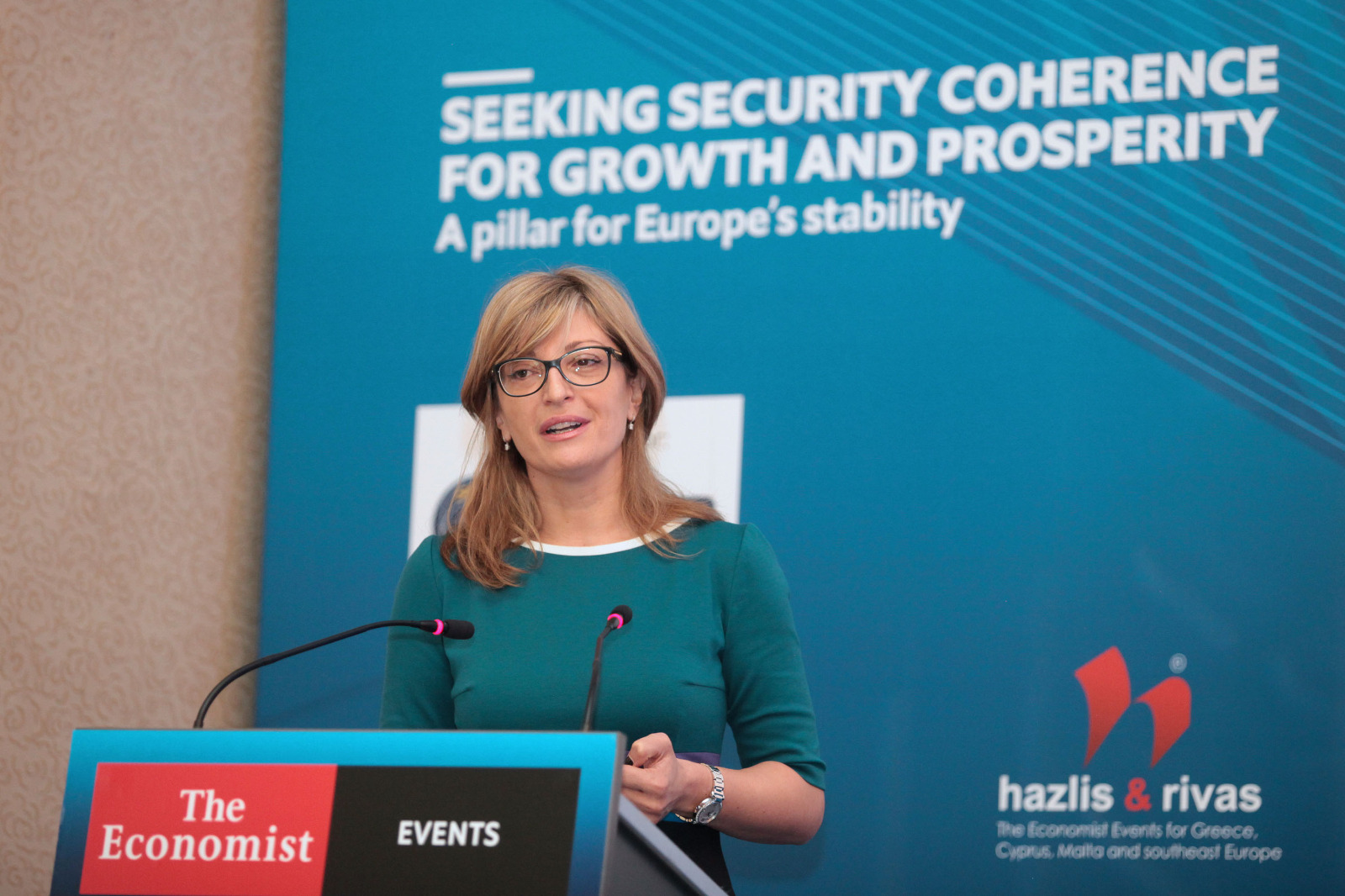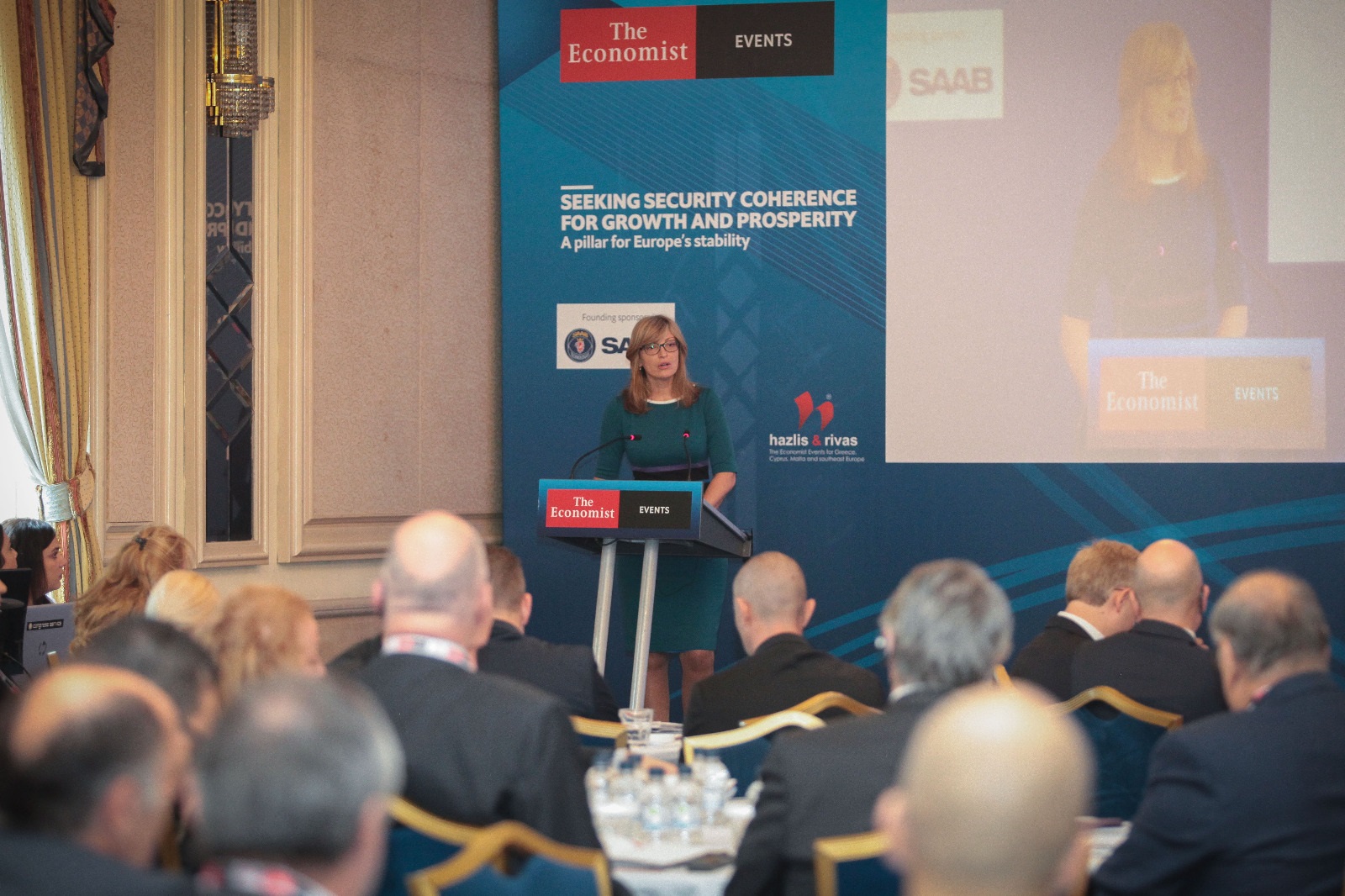Minister Zaharieva: Let Us Link the People and Businesses in the Balkans, Politicians Will Follow on Their Own
12 November 2018 News
“I think Europe returned to the Balkans in the past year because the EU realized that the European project will not be complete without stable, prospering, and peaceful Balkans,” Foreign Minister Ekaterina Zaharieva said at the conference “Seeking Security Coherence for Growth and Prosperity: a Pillar for Europe’s Stability”.
The event organized by the British The Economist was attended by the Bulgarian Deputy Prime Minister, European Commissioner Elzbieta Bienkowska, deputy ministers of defence, representatives of the European defence industry, analysts and politicians.
Minister Zaharieva outlined some of the challenges as well as the opportunities for economic growth and investments in Southeast Europe.
“If it was a goal for Bulgaria – what is more, one that was pursued successfully – to overcome the accumulated tension in the region, problems remain that we should not conceal,” the Minister said. She singled out as direct challenges the ongoing dialogue between Pristina and Belgrade and the outcome of the procedure for settling the issue with the name of the Republic of Macedonia. As the business community knows well enough, every challenge can also become an opportunity depending on what road we would take,” she stressed.
In her speech the Bulgarian Deputy Prime Minister singled out several social and political trends in the region that create economic challenges. She described the ways in which the common European policies could help in overcoming these obstacles.
“The main trends in the Western Balkans are the dwindling population, the high unemployment, the weak institutions, the ethnocentrism, the obsolete education, and the high unemployment among young people,” she said quoting a study by the EU Institute for Security Studies.
“One of Bulgaria’s strategic priorities is linked to Balkan cohesion and I am pleased that it received pan-European support,” the Minister said. She added that regional initiatives such as the Berlin Process which funded the Transport Union in the region, complement the all-European efforts. “Our goal is to achieve not only physical cohesion, but also digital one as well as harmonization of the customs requirements, for instance,” the Deputy Prime Minister added. She quoted a concrete example and pointed out that such measures would normalize and accelerate business activity. “I remember a statement last year by the senior regional head of the World Bank’s Transport Program, Simon Ellis, who pointed out that if we add up the hours which trucks spend waiting at the borders of the six countries in the region over one year, we would come up with a figure of 3,000 years,” Zaharieva said.
She singled out as an opportunity for deepening cooperation between the EU and the region the possibility that the six countries could be invited to take part in the debates on the future of the common European policies. “This could be done on topics such as the digital agenda, the environment, transport, and energy,” she said.
The Minister completed her presentation with the wish that “we should unite the people and the businesses because we politicians will then not have any other choice but to follow suit.”

